In the pursuit of a healthier, happier you, the journey often leads to various paths and choices. For those on the quest to shed those stubborn pounds, the name ‘Phentermine’ is no stranger. It’s hailed as a potent ally in the battle against obesity, promising to melt away those excess inches. But, here’s the million-dollar question: does this wonder drug come with a hidden, uncomfortable surprise – constipation?
Understanding potential side effects, such as constipation, is crucial for individuals taking Phentermine because it allows them to make informed decisions about their treatment. Constipation is a common side effect of Phentermine, and being aware of it can help patients manage this issue and seek appropriate remedies while continuing their weight loss journey safely.
Therefore, in this article we will discuss in detail, “do phentermine cause constipation?”
What is Phentermine?

Phentermine is a prescription medication commonly used to treat obesity by suppressing appetite and promoting weight loss. It belongs to a class of drugs called sympathomimetic amines, which work by stimulating the central nervous system to reduce hunger.
Now, let’s discuss the impact of phentermine on bowel movements.
Phentermine and Its Effects on the Body:
Phentermine is a prescription medication widely recognized for its role in the battle against obesity. At its core, Phentermine is a potent appetite suppressant. Its primary function is to help individuals struggling with weight loss by curbing their hunger, making it easier to consume fewer calories and ultimately shed excess pounds.
Phentermine operates primarily in the central nervous system, acting as a sympathomimetic amine. Here’s the science behind it:
- Neurotransmitter Release: Phentermine stimulates the release of neurotransmitters, such as norepinephrine, serotonin, and dopamine, in the brain. These chemicals play pivotal roles in regulating mood, appetite, and the body’s response to stress.
- Appetite Suppression: By increasing the levels of these neurotransmitters, Phentermine enhances feelings of fullness and satisfaction after eating, effectively reducing the sensation of hunger. This, in turn, leads to a decreased desire for food and a diminished appetite.
- Metabolic Boost: Additionally, Phentermine also stimulates the release of adrenaline, which can increase metabolism and energy expenditure. This added metabolic boost contributes to the overall weight loss effect.
The Connection between Medications and Constipation
Medications can be powerful tools for treating various health conditions, offering relief from pain, managing chronic illnesses, or addressing specific health concerns. However, there’s often an overlooked and uncomfortable side effect that can accompany many drugs: constipation.
Constipation is a common gastrointestinal issue characterized by infrequent bowel movements, difficulty passing stool, and sometimes, discomfort or pain. While not all medications cause constipation, a significant number of them can disrupt the normal digestive process, leading to this bothersome condition.
How Medications Can Cause Constipation

- Altered Gut Motility: Some medications, particularly opioids, certain antihypertensive, and anticholinergic drugs, can affect the normal contractions of the intestines. They slow down the transit of stool through the gastrointestinal tract, making it more difficult to have regular bowel movements.
- Dehydration: Medications like diuretics (water pills) can lead to increased urination and potential fluid loss, which can result in dehydration. Dehydrated stool is harder and more challenging to pass, contributing to constipation.
- Altered Nutrient Absorption: Certain medications, such as iron supplements or calcium channel blockers, may interfere with the absorption of nutrients in the intestines. This alteration in nutrient balance can affect the normal functioning of the digestive system, leading to constipation.
- Nervous System Effects: Medications that affect the central nervous system, such as some antidepressants and antipsychotics, can disrupt the communication between the brain and the gastrointestinal tract. This disruption can slow down bowel movements, causing constipation.
Importance of Considering Side Effects
Understanding the potential for medications to cause constipation is of utmost importance for several reasons:
- Management and Prevention: Awareness of the connection allows healthcare providers to take preventive measures or choose alternative medications when possible to minimize the risk of constipation.
- Patient Education: Patients can take proactive steps to manage constipation if they are aware of the potential side effects. This might include dietary changes, increased fluid intake, or the use of stool softeners or laxatives under medical guidance.
- Medication Adherence: Constipation can be a deterrent to medication adherence. Patients who experience uncomfortable side effects may be less likely to continue their prescribed treatments, potentially compromising their overall health.
- Risk Assessment: In some cases, constipation caused by medications can lead to severe complications like fecal impaction or bowel obstruction. Recognizing these risks helps healthcare providers monitor patients closely and intervene when necessary.
Does Phentermine lead to Constipation?
Phentermine, a widely used appetite suppressant for weight management, has garnered attention not only for its effectiveness but also for its potential side effects, including constipation. Let’s delve into the research and clinical studies to explore the possibilities of constipation as a phentermine side effect.
Research Findings:
- Clinical Studies: While there isn’t an extensive body of research dedicated solely to the constipation side effect of Phentermine, several clinical studies and reports have documented gastrointestinal issues associated with the medication. Constipation is among the reported gastrointestinal symptoms.
- Adverse Event Reports: The U.S. Food and Drug Administration (FDA) and other regulatory agencies collect adverse event reports from healthcare providers and patients. These reports have occasionally noted constipation as a side effect of Phentermine use.
Statistics and Data:
- Incidence Rates: Exact statistics on the incidence of constipation caused by Phentermine can be challenging to pinpoint. Incidence rates may vary depending on factors such as dosage, duration of use, and individual susceptibility. It’s essential to note that not everyone taking Phentermine will experience constipation.
- Patient Surveys: Some patient surveys and forums suggest that constipation is a relatively common complaint among individuals taking Phentermine. However, these reports are anecdotal and not based on controlled research.
- Clinical Trials: Phentermine is often studied as part of weight loss clinical trials. While these trials primarily focus on its effectiveness in reducing body weight, they also collect data on side effects. Constipation is occasionally reported as an adverse event in these trials.
Considerations:
It’s crucial to emphasize that individual responses to Phentermine can vary significantly. Factors like dosage, duration of use, pre-existing gastrointestinal conditions, and overall health can influence whether or not someone experiences constipation while taking Phentermine.
Additionally, healthcare providers typically monitor patients closely when prescribing Phentermine and provide guidance on managing potential side effects, including constipation. They may recommend dietary changes, increased fluid intake, or the use of over-the-counter remedies when appropriate.
Factors Contributing to Constipation
Constipation can arise from a variety of factors, both physiological and behavioral. Understanding these common contributors is essential in addressing and preventing this uncomfortable condition. Let’s explore some of the key factors that can contribute to constipation:
1. Dietary Choices:
- Low Fiber Intake: Diets lacking in fiber, found in fruits, vegetables, and whole grains, can result in slow bowel movements and difficulty passing stool.
- Insufficient Fluids: Inadequate hydration can lead to dry, hard stool, making it harder to pass through the intestines.
- Excessive Processed Foods: A diet high in processed foods, which often lack fiber and essential nutrients, can promote constipation.
2. Lifestyle Factors:
- Physical Inactivity: Lack of regular physical activity can slow down the natural contractions of the intestines, making bowel movements less frequent.
- Ignoring the Urge: Ignoring the urge to have a bowel movement can disrupt the body’s natural rhythm and contribute to constipation over time.
- Stress: Chronic stress can affect gut motility and contribute to constipation for some individuals.
3. Medications and Supplements:
- Certain Medications: Some medications, including opioids, antacids with aluminum or calcium, and certain antihypertensives, can cause constipation as a side effect.
- Supplements: Overuse or misuse of certain supplements like iron and calcium can lead to constipation.
4. Medical Conditions:
- Irritable Bowel Syndrome (IBS): A chronic gastrointestinal disorder characterized by abdominal pain and altered bowel habits, including constipation.
- Hypothyroidism: An underactive thyroid can slow down metabolism, including bowel movements, leading to constipation.
- Neurological Conditions: Conditions like multiple sclerosis and Parkinson’s disease can affect the nerves controlling bowel movements.
5. Age:
- Elderly Individuals: Aging can lead to decreased muscle tone in the colon, making bowel movements less efficient.
6. Pregnancy:
- Hormonal Changes: Pregnancy hormones can slow down the digestive process, and the growing uterus can put pressure on the intestines, contributing to constipation.
7. Dehydration:
- Lack of Fluids: Insufficient water intake can result in dry, hard stool that is difficult to pass.
8. Bowel Habits:
- Ignoring Regularity: Ignoring the need for regular bowel movements or suppressing the urge due to inconvenience can lead to constipation.
9. Genetics:
- Family History: Some individuals may have a genetic predisposition to constipation.
How Lifestyle, Diet, and Hydration Impact Constipation:
- Diet: A diet rich in fiber from fruits, vegetables, and whole grains promotes regular bowel movements by adding bulk to stool. Insufficient fiber intake can contribute to constipation.
- Hydration: Drinking an adequate amount of water helps keep stool soft and easy to pass. Dehydration can lead to dry, hard stool that contributes to constipation.
- Lifestyle: Regular physical activity can stimulate bowel movements and promote overall gut health. Ignoring the urge to have a bowel movement or leading a sedentary lifestyle can contribute to constipation.
Common Side Effects of Phentermine

Here are some of the known common side effects of Phentermine, with a specific emphasis on constipation:
1. Dry Mouth (Xerostomia):
Phentermine can reduce salivary flow, leading to a dry, uncomfortable mouth. This side effect is often temporary but can be bothersome.
2. Insomnia:
Phentermine is a stimulant that can increase alertness and energy levels. However, this effect can also lead to difficulty falling asleep or staying asleep, resulting in insomnia for some individuals.
3. Increased Heart Rate (Tachycardia):
Phentermine’s stimulant properties can elevate heart rate and blood pressure, which may be a concern for individuals with cardiovascular conditions.
4. Nervousness or Anxiety:
Some individuals may experience feelings of nervousness, restlessness, or anxiety while taking Phentermine due to its stimulant effects.
5. Irritability:
Phentermine can affect mood in some individuals, leading to irritability or mood swings.
6. Gastrointestinal Disturbances:
This category includes several potential side effects such as diarrhea, upset stomach, and constipation. Constipation, in particular, can occur due to changes in gut motility caused by Phentermine.
7. Dizziness or Lightheadedness:
Some individuals may experience dizziness or a feeling of lightheadedness, especially when standing up quickly.
8. Headache:
Headaches can be a side effect of Phentermine use for some individuals.
9. Taste Changes:
Phentermine may alter the perception of taste, leading to changes in the way food tastes.
10. Elevated Blood Pressure:
Due to its stimulant properties, Phentermine can increase blood pressure. This effect is closely monitored by healthcare providers during treatment.
Additionally, some side effects, like constipation, may be managed or mitigated through lifestyle changes, dietary adjustments, or over-the-counter remedies under the guidance of a healthcare provider.
Managing Constipation While Taking Phentermine
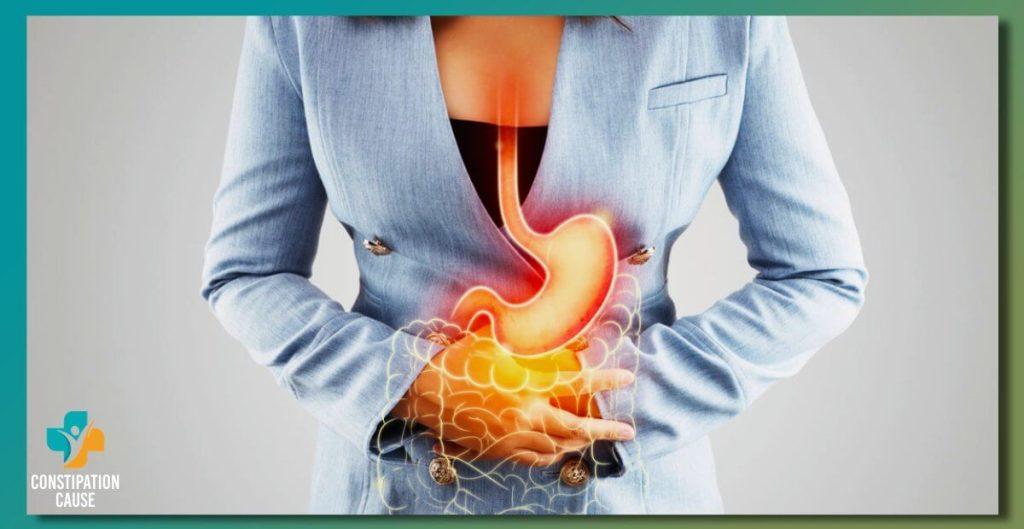
Constipation can be a bothersome side effect when using Phentermine. Fortunately, there are practical steps individuals can take to manage and alleviate constipation discomfort. Here are some helpful tips:
1. Increase Fiber Intake:
Dietary Fiber: Incorporate high-fiber foods into your diet, such as whole grains, fruits, vegetables, and legumes. Fiber adds bulk to stool, making it easier to pass.
2. Stay Hydrated:
Water Intake: Drink plenty of water throughout the day to keep stools soft and prevent dehydration, which can exacerbate constipation.
3. Regular Physical Activity:
Exercise: Engage in regular physical activity to promote healthy bowel movements. Even a brisk walk can stimulate your digestive system.
4. Establish Regular Bowel Habits:
Timing: Try to have a bowel movement at the same time each day, preferably in the morning when your body’s natural rhythm is often more active.
5. Listen to Your Body:
Respond Promptly: Pay attention to the urge to have a bowel movement, and don’t delay when you feel the need to go.
6. Stool Softeners or Laxatives:
Over-the-Counter Options: Consider using stool softeners or gentle laxatives as a short-term solution. However, consult your healthcare provider before using any medication or supplement to address constipation.
7. Limit Opioid Pain Medications:
Consult Your Doctor: If you are taking opioid pain medications in addition to Phentermine, consult your doctor. Opioids can significantly contribute to constipation, and your healthcare provider may adjust your treatment plan accordingly.
8. Maintain an Open Dialogue with Your Healthcare Provider:
Communication: Inform your healthcare provider about any constipation symptoms or discomfort you experience while taking Phentermine. They can provide tailored advice and recommend appropriate remedies.
9. Consider Alternative Medications:
Talk to Your Doctor: If constipation remains a severe issue despite trying lifestyle changes and remedies, discuss the possibility of alternative weight loss medications with your healthcare provider.
10. Be Patient and Consistent:
Give It Time: It may take some time for your body to adjust to Phentermine. Consistency in your dietary and lifestyle changes is key to managing constipation effectively.
Addressing Concerns and Misconceptions
Concern 1: “Phentermine Always Causes Constipation”
Debunking the Myth: While constipation is a reported side effect of Phentermine, it does not affect everyone. Individual responses to Phentermine can vary widely. By following dietary and lifestyle recommendations and consulting with a healthcare provider, individuals can often manage or even avoid constipation while taking the medication.
Concern 2: “I Can’t Use Phentermine If I Have a History of Constipation”
Debunking the Myth: Having a history of constipation does not necessarily preclude you from using Phentermine. It’s crucial to discuss your medical history and concerns with your healthcare provider. They can assess your individual risk factors and provide guidance on managing potential side effects.
Concern 3: “Phentermine Is the Sole Cause of Constipation”
Debunking the Myth: Constipation can result from various factors, including diet, lifestyle, medications, and underlying medical conditions. While Phentermine may contribute to constipation in some individuals, it’s often a multifactorial issue. Managing constipation may involve addressing multiple aspects of your health.
Concern 4: “There’s No Way to Prevent Constipation While Taking Phentermine”
Debunking the Myth: There are several proactive steps individuals can take to prevent or manage constipation while using Phentermine. These include increasing fiber intake, staying hydrated, maintaining regular physical activity, and establishing a consistent bowel routine. Additionally, over-the-counter remedies or prescribed medications may be considered in consultation with a healthcare provider.
Concern 5: “I Should Stop Phentermine Immediately If I Experience Constipation”
Debunking the Myth: While constipation can be uncomfortable, it does not necessarily warrant discontinuing Phentermine. It’s essential to maintain open communication with your healthcare provider. They can provide guidance on managing constipation while continuing your weight loss journey with Phentermine.
Concern 6: “Phentermine Is the Only Weight Loss Medication Available”
Debunking the Myth: Phentermine is one of several weight loss medications available. If constipation or other side effects become problematic, or if Phentermine is not suitable for an individual, alternative weight loss medications or strategies can be explored in consultation with a healthcare provider.
Concern 7: “Phentermine Is a Long-Term Solution for Weight Loss”
Debunking the Myth: Phentermine is typically prescribed for short-term use (typically 12 weeks or less) as an adjunct to dietary and lifestyle changes for weight loss. It is not a long-term solution. Sustainable weight loss involves adopting lasting lifestyle modifications and should be discussed with a healthcare provider for personalized guidance.
Potential Alternatives to Phentermine
While Phentermine can be effective for weight loss, it’s essential to explore alternative weight loss medications or approaches, especially if constipation or other side effects are a concern. Here are a few potential alternatives to Phentermine that may have a lower likelihood of causing constipation:
1. Orlistat (Alli, Xenical):
- How It Works: Orlistat works by preventing the absorption of dietary fat in the digestive tract, leading to reduced calorie intake.
- Constipation: Constipation is not a common side effect of Orlistat.
2. Buproprion/Naltrexone (Contrave):
- How It Works: This medication combines two drugs, one that affects appetite and one that reduces cravings for food.
- Constipation: While constipation is a possible side effect, it is less common compared to Phentermine.
3. Liraglutide (Saxenda):
- How It Works: Liraglutide is a GLP-1 receptor agonist that reduces appetite and promotes a feeling of fullness.
- Constipation: Constipation is a potential side effect, but it may occur less frequently than with Phentermine.
4. Diet and Lifestyle Changes:
- How It Works: Implementing healthy dietary habits, increasing physical activity, and managing portion sizes can be effective for sustainable weight loss without medication.
- Constipation: Dietary and lifestyle changes can be tailored to minimize the risk of constipation and promote overall gut health.
5. Behavioral Therapy and Support:
- How It Works: Behavioral therapy and support from registered dietitians or psychologists can help individuals develop healthier eating habits and address emotional factors related to weight gain.
- Constipation: These approaches do not have constipation as a side effect and focus on sustainable, long-term weight management.
Importance of Consulting a Healthcare Professional:
It’s crucial to emphasize that the choice of a weight loss medication or approach should be based on an individual’s unique needs and circumstances. Consultation with a healthcare professional, such as a primary care physician or a registered dietitian, is essential to determine the most appropriate option.
Healthcare providers can consider factors such as an individual’s medical history, existing health conditions, potential side effects, and personal weight loss goals when making recommendations. Additionally, they can provide guidance on managing constipation and other side effects while on a weight loss program.
Success Stories and Testimonials
Success Story 1: Jennifer’s Journey
Jennifer struggled with obesity for years and decided to try Phentermine under her doctor’s supervision. She experienced constipation initially but took proactive steps to manage it. By increasing her fiber intake through whole grains, fruits, and vegetables, staying well-hydrated, and maintaining regular physical activity, Jennifer successfully managed her constipation. With Phentermine and these lifestyle changes, she achieved her weight loss goals and regained her confidence.
Success Story 2: Mark’s Transformation
Mark’s weight loss journey with Phentermine was life-changing. However, constipation became a concern. Mark consulted his healthcare provider, who recommended over-the-counter fiber supplements and daily walks to stimulate bowel movements. With dedication and these strategies, Mark not only overcame constipation but also achieved remarkable weight loss results.
Dietary Tips for Combating Constipation
If you’re taking Phentermine and want to prevent or alleviate constipation, consider these dietary tips:
- Increase Fiber Intake:
- Include whole grains (e.g., oats, brown rice), fruits (e.g., apples, berries), and vegetables (e.g., broccoli, spinach) in your daily meals.
- Aim for at least 25-30 grams of fiber per day.
- Stay Hydrated:
- Drink plenty of water throughout the day to keep stool soft and easy to pass.
- Prunes and Prune Juice:
- Prunes are a natural remedy for constipation. Snack on prunes or drink prune juice to promote regular bowel movements.
- Probiotic-Rich Foods:
- Yogurt, kefir, and other probiotic-rich foods can help maintain gut health and regularity.
- Limit Processed Foods:
- Reduce the consumption of processed foods, which are often low in fiber and nutrients.
- Healthy Fats:
- Include sources of healthy fats, such as avocados, nuts, and olive oil, in your diet to promote overall gut health.
- Regular Meal Times:
- Eat regular, balanced meals at consistent times each day to establish a predictable bowel routine.
- Limit Dairy:
- Some individuals may find that dairy products contribute to constipation. Experiment with dairy alternatives if needed.
- Avoid Excessive Caffeine and Alcohol:
- Both caffeine and alcohol can dehydrate the body, potentially exacerbating constipation. Consume them in moderation.
- Consult a Registered Dietitian:
- If you’re struggling with constipation or have specific dietary concerns, consider consulting a registered dietitian for personalized advice and meal planning.
Remember that dietary changes may take time to show their full effect. Be patient and consistent in implementing these dietary tips, and consult with your healthcare provider for guidance tailored to your specific needs and circumstances.
Conclusion
In this comprehensive article, we’ve explored the relationship between Phentermine and constipation, debunked common myths, and provided practical guidance on managing this side effect. Here are the key takeaways:
- Phentermine is an appetite suppressant used for weight management, but it can lead to constipation as a potential side effect.
- Constipation is not a guaranteed outcome, and individual responses vary widely.
- Lifestyle factors, diet, and hydration play a crucial role in managing constipation while using Phentermine.
- Communication with a healthcare provider is essential to address concerns, tailor treatment plans, and manage side effects effectively.
- Constipation is not a reason to discontinue Phentermine but rather an issue to address proactively through dietary, lifestyle, and medical interventions.
- Alternative weight loss medications or approaches with lower constipation risks are available and should be considered in consultation with a healthcare professional.
It is of utmost importance to stay informed about potential side effects when using Phentermine or any other medication. Being proactive in managing constipation and other potential side effects is essential for a safe and successful weight loss journey.
We encourage all readers considering or currently using Phentermine to consult with their healthcare provider. Personalized advice and a tailored approach to weight management can help individuals achieve their goals while minimizing discomfort and ensuring overall well-being. Remember, your healthcare provider is your best resource for navigating the world of weight loss medications and treatments safely and effectively.
I hope this article answered your question; “do phentermine cause constipation?”
Frequently Asked Questions
Can Phentermine cause constipation in everyone who takes it?
No, Phentermine does not cause constipation in everyone who takes it. The likelihood of experiencing constipation as a side effect varies from person to person. Some individuals may not experience constipation at all, while others may find it to be a bothersome side effect.
What are some common signs of constipation when using Phentermine?
Common signs of constipation while using Phentermine may include:
– Infrequent bowel movements
– Difficulty passing stool
– Hard or dry stool
– A feeling of incomplete bowel evacuation
Are there any over-the-counter remedies for constipation while on Phentermine?
Yes, there are over-the-counter remedies available for constipation. These include stool softeners, laxatives, and fiber supplements. However, it’s essential to consult with a healthcare provider before using any of these remedies to ensure they are appropriate and safe for your specific situation.
How long does constipation typically last as a side effect of Phentermine?
The duration of constipation as a side effect of Phentermine can vary. For some individuals, it may be a temporary issue that improves with dietary and lifestyle adjustments. Others may experience constipation for a more extended period. If constipation persists or becomes severe, it’s important to consult with a healthcare provider for guidance.
Are there any warning signs that I should seek immediate medical attention if I experience constipation while taking Phentermine?
While constipation is generally not an emergency, there are warning signs that should prompt you to seek immediate medical attention. These include:
– Severe abdominal pain
– Blood in the stool
– Sudden changes in bowel habits
– Signs of bowel obstruction, such as vomiting and an inability to pass gas or stool
If you experience any of these symptoms while taking Phentermine, contact your healthcare provider or seek medical assistance promptly, as they may indicate a more serious underlying issue.
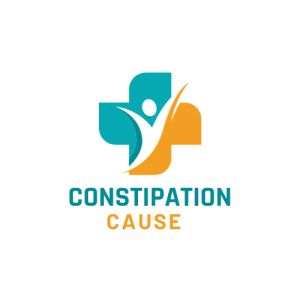


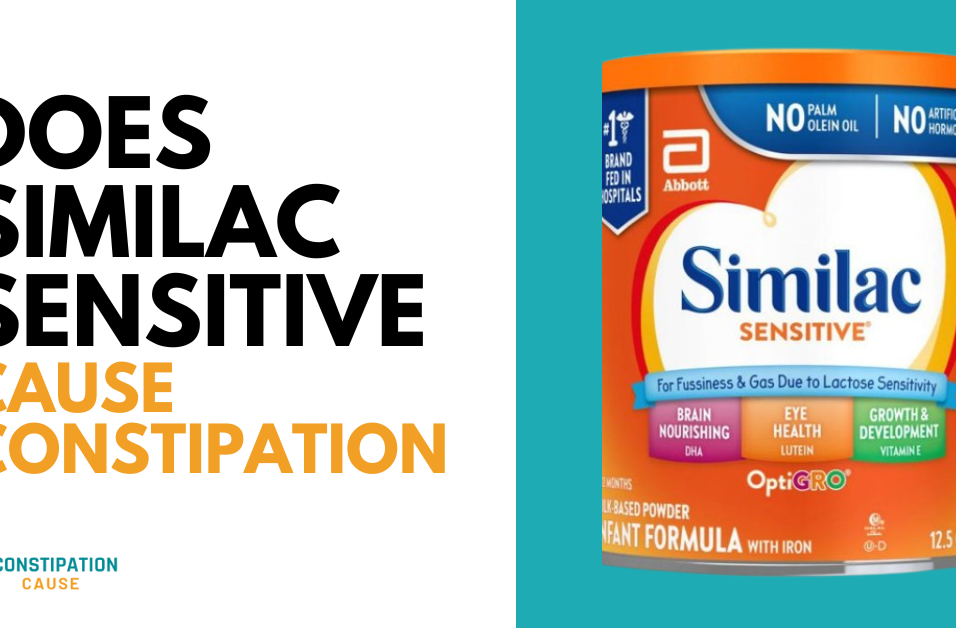
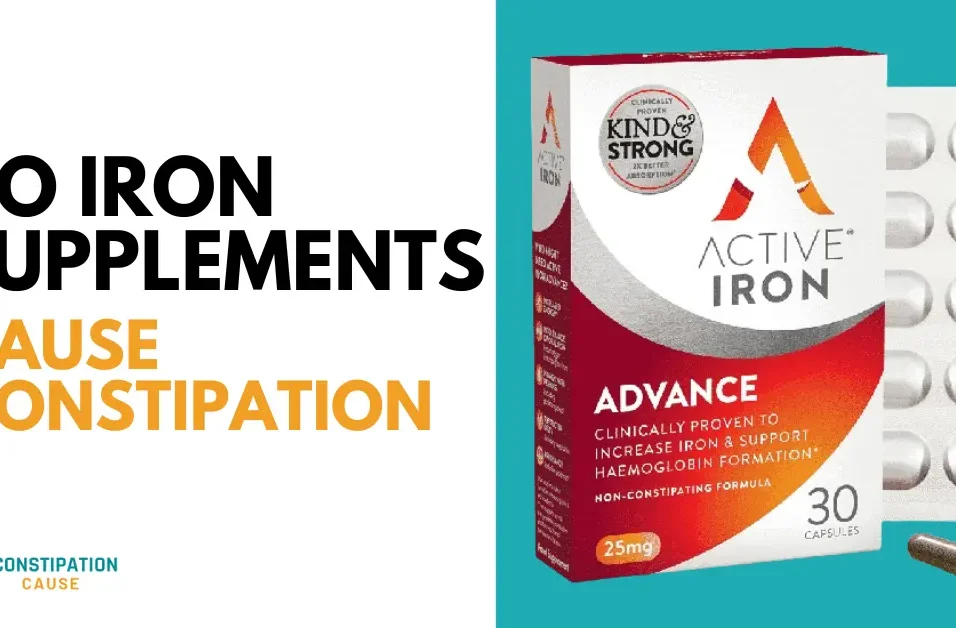



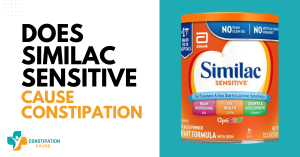
Leave feedback about this